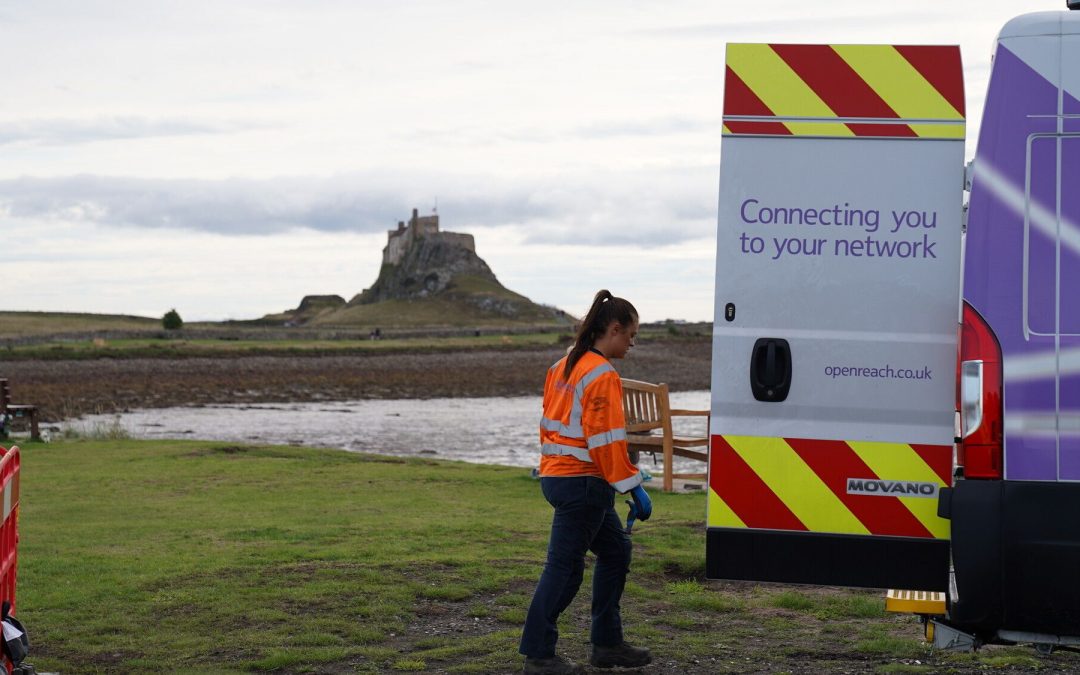In 2019 the UK Government began to make commitments for improving the country’s networks that will see gigabit capable broadband made available to at least 85 per cent of the UK by 2025.
Here at Openreach we’re investing £15 billion into building Ultrafast Full Fibre broadband across the country. We’re building faster and cheaper than ever before, reaching more than nine million premises and counting, and are on track to get to 25 million premises by the end of 2026.
It’s one of the UK’s largest infrastructural projects and our build will be the bedrock in achieving the Government’s ambition. To reach our ambition, we need to build at an unprecedented scale and speed. So that’s exactly what we’re doing.
Openreach is a commercial business, just like every other company that builds networks, but unlike others, we’re also committed to serving the whole of the UK. That’s why we’re investing more into connecting rural communities that any other builder. Out of our target to connect 25 million homes and businesses to full fibre broadband by the end of 2026, 6.2 million of those - around a third - are in the hardest-to-reach and most remote communities in the UK – defined by Ofcom as ‘Area 3’.
More than 2,700 cities, towns, villages and hamlets have been included in our build plans so far, and we’re working right across the UK – from the Highlands and Islands of Scotland to the rolling hills of Devon, and from Welsh valleys to the streets of London.
We’re also heavily involved in delivering a significant volume of build projects for the UK, Scottish (R100) and Welsh Governments in some of the hardest to reach areas – no company’s doing more rural.
Of course, rural connectivity is something governments and the whole industry need to tackle collectively. And the reality is that some homes might always be too expensive and complex to reach with the best fixed broadband technologies – so we have to keep innovating and exploring models which can deliver the best-connected future for the countryside.
For example, our Chief Engineer’s team makes sure that we’re always at the cutting edge of the industry, taking learnings from all around the world to research and develop new and better tools, techniques and technologies. Many of these innovations help to make rural builds more feasible and cost effective: like drones that let us fly fibre across rivers and valleys, and our ‘Clean Fast’ machine, which uses ‘rock-wheel’ cutting technology to lay up to one kilometre of fibre cable per day. Not only is this 50 times faster than conventional mechanical methods, but it protects the local environment by sucking up waste material as it works. It’s an innovation that’s cost-effective, time-saving, and green.
The impact of this new network will be transformative. It’s never been more important for businesses to have access to reliable and fast broadband. The pandemic has not only changed the way people work but has also seen businesses use online innovation to create new revenue streams and transform operations. Building a nationwide Full Fibre broadband network means we can support even more businesses to get connected and discover the benefits, like cloud technology. The cloud can help businesses maximize their resources, from securely storing and accessing huge amounts of data off-site, to real-time automated data analyses to help improve sales and marketing. Businesses can save on overheads incurred in physical storage space, and even on office space, as Full Fibre supports remote working and seamless video conferencing
Digital connectivity has never been more important. If you don’t believe that, just look back at the last two years. The broadband network which we built over the last decade enabled millions of people to switch to home working overnight. It’s kept children in touch with schools, kept businesses trading and kept all of us connected with friends and family, when we couldn’t meet in-person. Yet despite that digital resilience, the pandemic has also made the case even stronger for a further upgrade to the UK’s broadband infrastructure to gigabit capability. Unlocking economic and social benefits. Supporting new models of healthcare and public service delivery. These are goals which we all share, and fully fibring the nation is the way to reach them.
With the challenges we face as a country, this an opportunity we can’t afford to ignore.

Katie Milligan, Chief Commercial Officer

